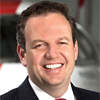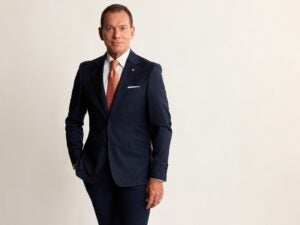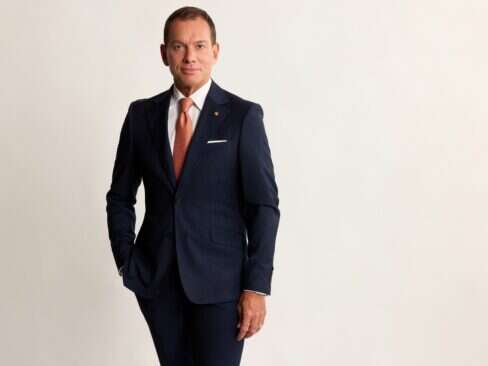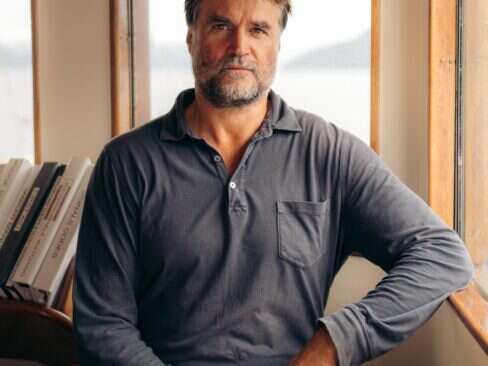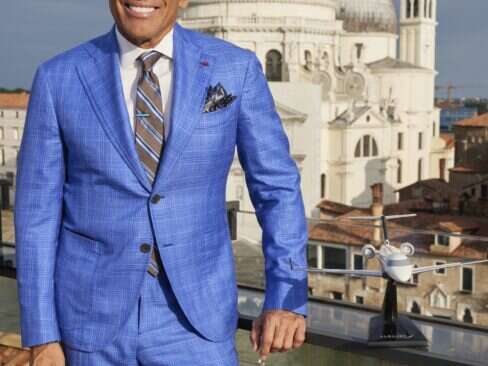
CEOJetSuite
Southwest Airlines, Virgin Atlantic Airways and JetBlue are arguably three of the most important commercial airlines in the post-deregulation era. So what is a former executive who has worked at all three, and launched an airline in India, doing in an FBO in Long Beach, California? Meet Alex Wilcox and welcome to JetSuite, a company that believes the market for entry-level or very light jets is alive, well and waiting to be tapped. Recently Elite Traveler Editor-in-Chief Douglas Gollan visited Wilcox, where he outlined his new company’s business model, made a compelling case for why it will succeed and shared some interesting stories about the aviation business.
ET: How did you get involved in aviation?
Alex Wilcox: My mother is Swiss and my father is from the States, so I traveled a lot when I was little and for me, getting there was always more than half the fun. After high school I worked for a charter operator in Burlington, Vermont and during college I had an internship working under Ginger Hardage, the legendary public relations director at Southwest Airlines. This is all pre-internet and my job as an intern was to go through every local and national paper for anything to do with airlines, make 100 copies and distribute it to all the executives, so I met everyone from [current CEO] Gary Kelly to [former CEO] Jim Parker, [EVP] Colleen Barrett and [founder] Herb Kelleher, and saw everyone almost everyday. At that time we had just bought Morris Air out of Salt Lake City and there was the big question of “how do we integrate these Morris Air Mormons into the zany Southwest culture?” So it was interesting to see how a company that size was so concerned with culture. I learned a lot about how you can make an organization grow by taking care of your people, and how important culture is. After college I took two years off and managed a rock band traveling in a Winnebago. So I saw a lot of this country from cornhusk level. After the band broke up, I got a job in customer service at Virgin Atlantic. A couple weeks after I started, they moved the offices from downtown Manhattan to Norwalk, Connecticut, and all these jobs opened up. Suddenly I was working for David Tait, who was the head of the airline in the United States. At the time, Virgin was on fire, and anyone who wanted to go into business with Richard [Branson] in the U.S. and sent us a business plan ended up on David’s desk. Everything from nail salons, to anything you can think of. David liked me, so he was letting me look at the plans to see if there was anything he should look at. One of the plans was from a guy, David Neelman from Salt Lake, who happened to have founded Morris Air. David liked it, we sent it on to London, and they liked it. We ended up pitching it to Branson but the head of legal at Virgin at the time didn’t like the deal. It was around 1997 and JetBlue would have been Virgin America otherwise. Because Branson had been so interested, the other investors got really interested because they figured if Richard was interested, it must be a good deal. I ended up going over to launch JetBlue with David [Neelman]. My claim to fame was the leather seats, nice counters in the bathrooms and the TVs, which were a huge part of the brand and not very standard back then. After about six years with JetBlue I was recruited by [beer mogul] Vijay Mallya to launch Kingfisher. He talked me into visiting India and at the time, in 2005, India was on fire. He made me an offer I couldn’t refuse. We delivered him an airline in four months, using my knowledge of how to buy airplanes from JetBlue. It was an amazing experience, but after a year and a half, I needed to return to California to be closer to my daughter and came back looking for the next thing to do. I met the investors for JetSuite in New York. They had ordered 100 Adams [very light jets] and 100 Embraer Phenom 100s. Flash-forward three years and Adam went away but Embraer came through and delivered an amazing plane.
ET: So where is the company today?
Alex Wilcox: We have seven identical Phenom 100s and we should close the year with 11 or 12 airplanes. Right now we are only operating in the Western U.S., so basically from Texas to here. It’s easier to operate out here. If you take a look at the time it takes to fly D.C. to New York, than Vegas to L.A., it’s about 30 percent slower out there. The nonstop range of the airplane is about 1,000 miles—if you are fully loaded with four guys and golf clubs, 900 miles—and what that basically means is from here to Portland to Denver to Los Cabos. It turns out, according to NBAA, that 80 percent of private flights are under 1,000 miles and 90 percent have less than five people onboard. People today want to have a plane fitted for their mission.
ET: What about the size of the cabin?
Alex Wilcox: It’s taller and wider than a lot of mid-size planes and it has the largest baggage compartment in its class. You can bring skis up to 180 centimeters in the luggage, not the cabin.
ET: What’s the plan for the next five years?
Alex Wilcox: We are building a branded charter company at a lower cost. There seems to be a growing need for this, not only here, but in other parts of the world. We have unsolicited offers from other parts of the world, from investors who want the JetSuite brand. We are talking about franchise, shared ownership, all preliminary at this point. However we need to prove here that the business can work before we expand too much. As you know that’s been the downfall of a lot of airlines and jet companies.
ET: Are you making money yet?
Alex Wilcox: Once we get to 10 airplanes we will start making money, so we are closing in on positive territory. Right now the best part is customer feedback. In five months we got our ARGUS Platinum rating.
ET: Describe the typical customer.
Alex Wilcox: It depends on day of the week and market. On Friday night, it’s two couples going to Vegas, and on Tuesday morning it’s three investors going from Santa Barbara to Fresno to look at opportunities. We have one owner, whose jet we manage for him, and he is a brain surgeon, so when he calls he is off to an operation to save somebody’s life. It’s people with second homes in Sun Valley. There is a new Amangiri resort in Page, Arizona. It’s a five hour drive from Vegas, but much easier to fly. We are flying there all the time.
ET: And the formula is prepaid charter only?
Alex Wilcox: No, we’ll own 80 percent of our aircraft and we will sell and lease back the other 20 percent. The airplanes are all identical. If you are an owner, you get a slight discount to market price, you get tax benefits, you get a guaranteed $25,000 per month for rental and you get 25 hours of free flying, plus a 10 percent discount on additional hours. We hangar and maintain it. You get support from Embraer and Pratt & Whitney. Plus we zero-time your engines at the end of five years.
ET: There have been some noteworthy entrants who have failed using VLJs, including the former chairman of American Airlines. Other VLJs were being built by people who never built an airplane.
Alex Wilcox: Some of the guys who didn’t make it got hamstrung by the Eclipse [a failed VLJ manufacturer]. It was too small, the air navigation wasn’t what was needed and there was no baggage space. There were only three seats to sell. We fly with two pilots and two engines. People didn’t want one engine or one pilot. The [Florida VLJ operator] DayJet very public failure was a big obstacle to Pogo [Bob Crandall’s venture] raising money. They were right, there is a better way to travel, but they had the wrong platform. Embraer builds commercial planes for airlines that operate planes eight or nine times per day. A start-up airline with a start-up airplane manufacturer was their downfall in my opinion. We like Embraer because they have a strong track record in manufacturing and maintaining jets for some of the world’s top commercial airlines.
ET: Recently British Airways made a deal with CitationAir, and Korean Air with Bombardier Flexjet. Lufthansa has had its LPJ product in Europe for several years now. Any partnerships with commercial airlines in the works?
Alex Wilcox: We have some interesting possibilities in front of us. When I was running the Upper Class product, the key was having the ground amenities such as limo and lounges on both sides of the Atlantic, so whomever figures that out for the private jets will have something interesting going. If you think about our price points, I think they are also more in line with the add-on in terms of a price that fits. However, I don’t have anything to announce right now.
ET: Would you consider larger, long-range aircraft to connect your regional footprints as you expand?
Alex Wilcox: We do have customers who want to go to Houston or Chicago, or have bigger families. The Phenom 300 has 500 miles’ extra range and more capacity. It costs twice as much, but there is a demand for it. We won’t own those planes but the Legacy 450 and 550 are coming to market and that will have TranCon range and East Coast Transatlantic range. That would be something to watch, and we will be looking at it.
ET: Where did the name JetSuite come from?
Alex Wilcox: Amy Curtis McIntyre, who is now the VP Marketing at Old Navy and was at Virgin and Jet Blue, is on our board. She named JetBlue and she named JetSuite. We understand the importance of a consumer brand.
ET: Even with good branding, the aviation business is difficult.
Alex Wilcox: I’ve seen billionaires get reduced to tears and others make hundreds of millions. It’s all about the idea, the balance sheet and the backers. If you have a single good idea, as Southwest Airlines has proven over 50 years, you can make money by choosing one part of the market and sticking to it. We will be a single type operator and we will build a consumer brand.
ET: What’s the value you are offering?
Alex Wilcox: Most of the value in flying private is short haul. From here to Fresno, Las Vegas or Denver, the value of flying private is not dealing with TSA, the friction of the airport experience, getting shoved around boarding the plane, waiting an hour for luggage. Vegas is 45 minutes in the air [from Long Beach], so two-thirds of your time is saved. Who cares if you save an hour from here to Tokyo if you are paying 10 times more? Our rate from here to Vegas for cardholders is $2,900, and you can divide that by four if you have four people.
ET: Can you give us an overview of your pricing?
Alex Wilcox: We have two levels of products and two levels of pricing. One-way occupied only and day rate. One-way has no ferrying fees and is $2,900 per hour. Our day rate is $3,000 for the plane for the day, for up to 12 hours, and $999 per hour that you fly. The minimum commitment is $50,000, $100,000 and $500,000. If you buy the $100,000 program, you get the five percent bonus and at a quarter million you get a 10 percent bonus. The money is all in a California Sellers of Travel escrow account and you can get back anything you haven’t used whenever you want.
ET: Are you partnering with other companies?
Alex Wilcox: We just created a package with the Wynn for two Towers Suites for three nights and roundtrip air for around $5,000.
For more information about JetSuite, please visit www.jetsuite.com.









